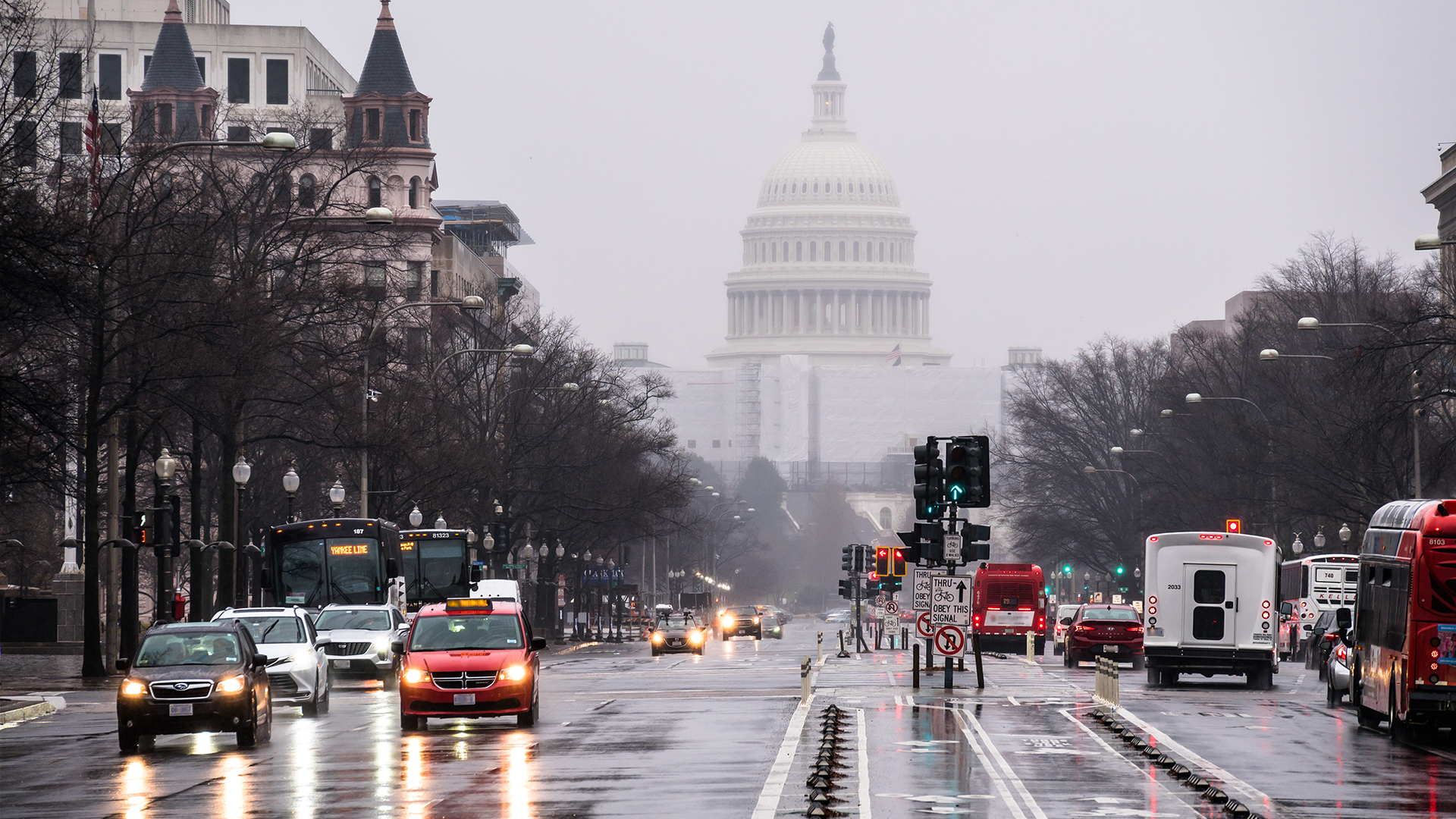
[Jack Aylmer]
BUSINESSES AND THE GOVERNMENT ARE INVESTING MORE IN THE EV MOVEMENT, WITH CORPORATIONS AND AGENCIES PUSHING TO ELECTRIFY THEIR FLEETS OF VEHICLES.
IN THE PRIVATE SECTOR, EV USE HAS SURGED. FROM MAKING DELIVERIES, TO SERVING TELECOMMUNICATIONS CUSTOMERS, ABOUT A QUARTER OF EMISSIONS PRODUCED BY TRANSPORTATION COME FROM COMMERCIAL VANS, A TREND EV INITIATIVES AT A NUMBER OF COMPANIES SEEK TO COMBAT.
AMAZON IS PLANNING TO HAVE ONE HUNDRED THOUSAND EVS ON THE ROAD BY THE END OF THE DECADE.
2030 IS ALSO THE DEADLINE SET BY FEDEX TO MAKE ALL OF ITS NEW VEHICLE PURCHASES ELECTRIC.
BOTH DELIVERY GIANTS HAVE COMMITTED TO ACHIEVING CARBON NEUTRAL VEHICLE FLEET OPERATIONS BY 2040.
COMCAST WANTS TO REACH THAT MILESTONE EVEN SOONER, WITH PLANS TO DO SO COME 2035. THE COMPANY SAYS ITS EMISSIONS REDUCTION SINCE 2019 IS A RESULT OF GOING ELECTRIC, EQUIVALENT TO TAKING TWO HUNDRED THOUSAND CARS OFF THE ROAD FOR A YEAR.
LIKE COMCAST, AT&T IS ALSO AIMING FOR CARBON NEUTRALITY BY 2035, RECENTLY ANNOUNCING A DEAL WITH RIVIAN TO ADD MORE ZERO-EMISSION E-V MODELS TO ITS FLEET BY AS EARLY AS NEXT YEAR.
MEANWHILE IN THE PUBLIC SECTOR, THE FEDERAL GOVERNMENT IS MAKING ITS OWN COMMITMENTS TO TRANSITION AWAY FROM GAS-POWERED VEHICLES.
IN 2021, PRESIDENT BIDEN ISSUED AN EXECUTIVE ORDER DIRECTING THE GOVERNMENT TO STOP PURCHASING VEHICLES WITH COMBUSTION ENGINES BY 2035, ADDING THAT ALL LIGHT-DUTY FEDERAL ACQUISITIONS BY 2027 SHOULD BE EVS OR HYBRIDS.
TO DATE, THE WHITE HOUSE HAS ACQUIRED FOURTEEN THOUSAND ZERO-EMISSION VEHICLES FOR THE GOVERNMENT’S FLEET, WITH NINETEEN PERCENT OF THOSE PURCHASED THIS YEAR HAVING BEEN ELECTRIC. THAT’S UP FROM JUST ONE PERCENT IN 2021.
THE BIDEN ADMINISTRATION ALSO ISSUED A NEW DIRECTIVE FOR FEDERAL EMPLOYEES TO BE TRANSPORTED BY EITHER AN EV, ELECTRIC RIDESHARE VEHICLE, OR TRAIN WHEN TRAVELING ON OFFICIAL BUSINESS WHEN FEASIBLE.
WITH AN ANNUAL BUSINESS TRAVEL PURCHASING BUDGET OF TWO POINT EIGHT BILLION DOLLARS, THIS MOVE IS PROJECTED TO MAKE SERIOUS CUTS TO THE GOVERNMENT’S EMISSIONS OUTPUT.











